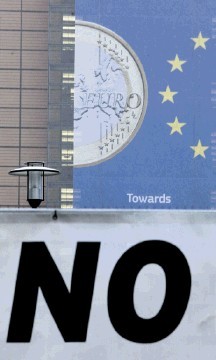
The last few years have undoubtedly been some of the most turbulent in economic history. The tightening of credit conditions has had a major impact on governments’ finances with many countries taking radical steps to balance the books and finding their ability to repay debt being closely scrutinised.
Therefore, it comes as no surprise that the countries with the worst debt to GDP (gross domestic product) ratio such as Greece, Italy and Ireland have been placed under the spotlight. However, larger economies such as the UK and France are not immune to the implementation of austerity measures.
Governments have a number of options as to how they balance the books. They can raise more revenue – basically increase taxes – or cut spending.
Judging it right will be critical to the long-term health of the economy; increase taxes too much or reduce spending too severely and they run the risk of stalling economic growth, thereby further reducing the tax base and potentially creating a downward spiral for the economy.
Ultimately, the decision will be part economic, part political and part crystal ball gazing.
So, how have international governments reacted to the fiscal crisis in the tax arena and how this has impacted the oil and gas industry and the local economy?
Corporate taxes
Although it may seem counter intuitive, the reaction of most governments to the crisis has been to reduce the rate of corporate tax. Specifically, in the UK, the Chancellor has announced that the UK corporate rate will gradually be reduced to 23% by 2014. This approach reflects the wider trend of globalisation and the ability of companies to locate in tax-friendly environments.
Additionally, the UK Government has gone a step further by declaring it wishes to make Britain the most competitive tax system within the G20 group of large nations. To this end, a number of reforms have been introduced or are being implemented.
Notably, the tax system is moving to a territorial basis. Basically, the UK will only seek to tax profits made from operations in the UK, subject to rules to prevent avoidance by diverting profits out of the UK.
These changes benefit all companies working in the oil and gas sector as their tax rate is coming down and any that win contracts overseas in lower tax locations (such as the Middle East) no longer need to pay UK tax on these profits.
Of course, this has coincided with the dramatic increase in tax for producers of oil and gas in the North Sea to 62%. The contrast with the above reforms is that these resources are geographically fixed and therefore the tax regime needs to respond less to the international environment.
There are proposals in Europe to move to a consolidated tax base. This can be seen as a threat and is clearly a threat to the UK objective, also the low tax rates available in Ireland (12.5%). This will undoubtedly be the subject of much debate at a political and business level given the fundamental implications such a reform embodies.
Personal taxes
The trend in personal taxes is broadly an increase for the better off with status quo for the majority. A backdrop to the drivers behind this trend is the open letter written by a number of very wealthy French individuals saying they should pay more tax and the American business magnate Warren Buffet noting that he paid a lower rate than his cleaner. It is therefore likely that the trend will continue with more being squeezed from “the rich”.
Indirect tax/VAT
Whilst direct taxes are going down in many locations, the same cannot be said of VAT. Like most countries, the UK has recently increased VAT to 20%. The switch from direct tax – corporate or personal income tax – to consumption taxes is an ongoing trend driven by the fact that they are relatively easy to collect and are less likely to drive decisions of corporate or personal residence.
Anti-avoidance
This is an area of significant activity at present. Many governments are seeking to close loopholes and PM David Cameron and his depute, Nick Clegg, have recently made pronouncements on this topic.
The UK is consulting on introducing a general anti-avoidance rule (GAAR).
Specific there has been press coverage on a clamp down on tax avoidance on stamp duty on expensive homes and the introduction of a mansion tax.
Given the £2million value threshold this is unlikely to impact many households in the northeast of Scotland.
Tax base
Another trend is the move to broaden the tax base by catching additional transactions or introducing new taxes.
An example that was of direct relevance to the oil and gas industry was the extension of air passenger duty to private jets that could have brought North Sea helicopter flights within the scope of this tax. Whilst this outcome was avoided in the end it is a great example of how the tax base is being broadened.
Striking right balance
The need to eliminate budget deficits has not led to the obvious conclusion that all taxes must go up. Such a move would possibly lead to business relocation or deprive the economy of much-needed investment and jobs.
This balance of economic theory and what is politically acceptable is driving who bears any additional strain.
Equally, the increasing need to live in the global economy means a trend towards taxes on transactions or geographically immobile industries.
Colin Pearson is a tax partner at Ernst & Young
Recommended for you
